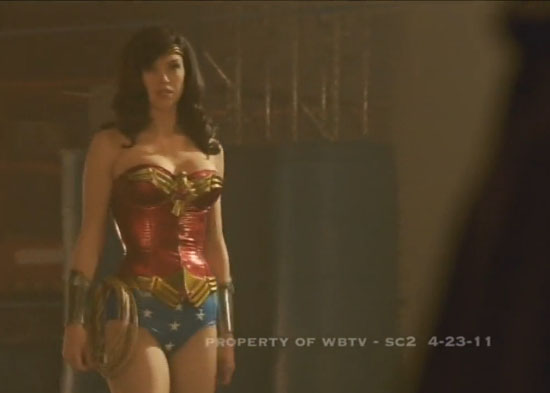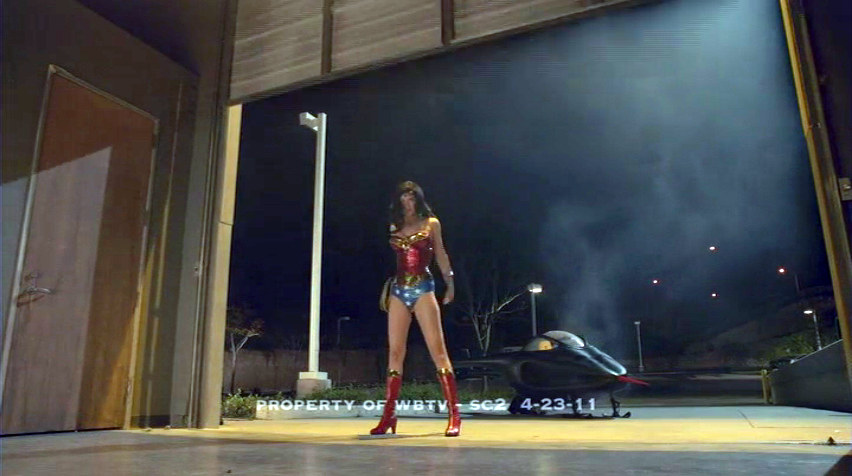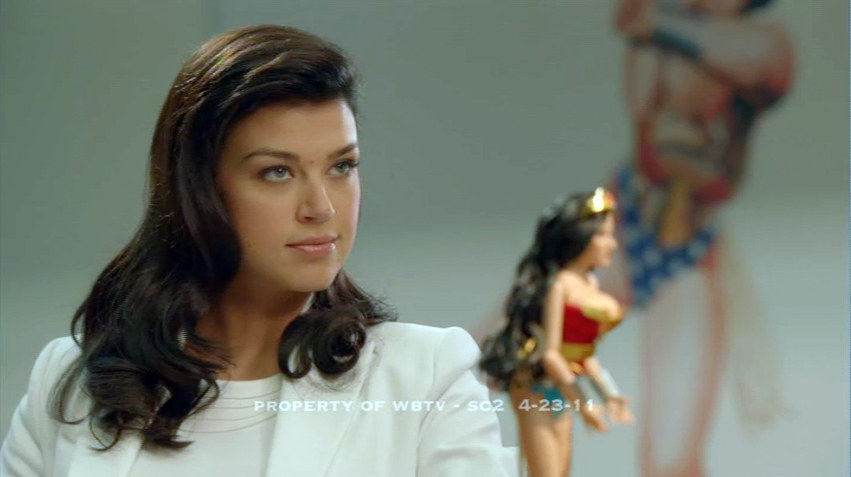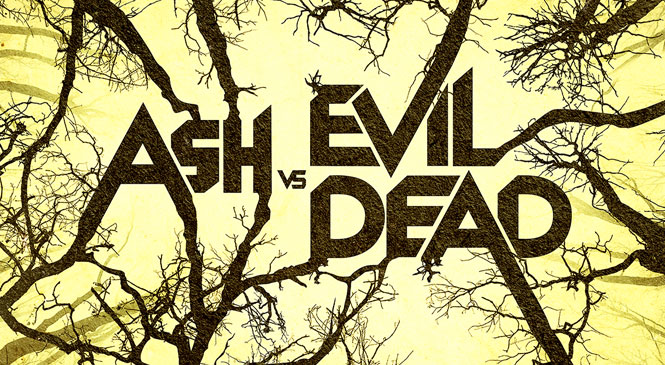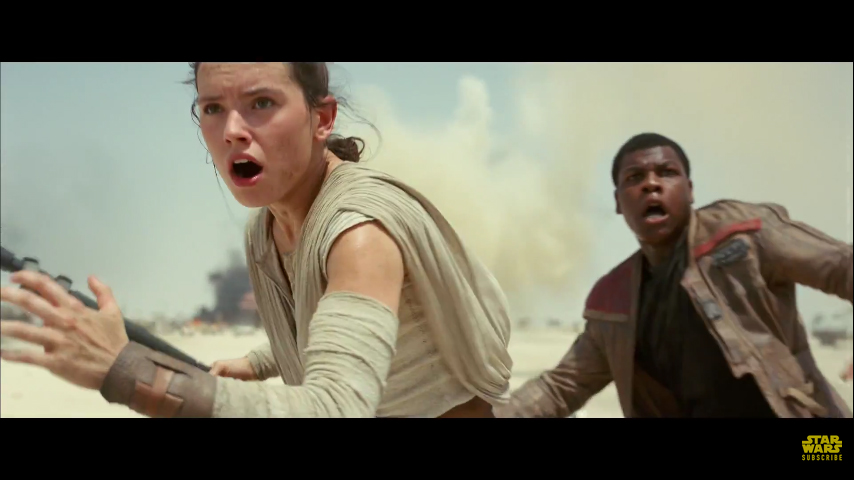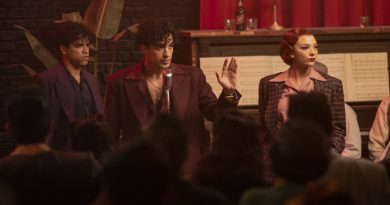How to Make "Wonder Woman" Work

So, David E. Kelley had his shot at making a modern-day “Wonder Woman”. And he failed miserably.
Our own Mr. Harvey shared his thoughts, and io9 actually thought it was better than expected. The Interwebz are quickly filling with opinions on either side, ranging from tepid acceptance to outright hate.
But the question remains: How do you make a good Wonder Woman show?
Remember, Wonder Woman is an Amazon.
Wonder Woman’s origin has been tweaked and revamped many a time, including the one where she’s made out of clay and a little bit of Amazon love … but at her very core, she has always had the potential to be a complex character. And I don’t mean complex like Ally McBeal is complex.
Diana is royalty. Her mother is queen of the Amazons. And that has to play with your head and how you view others. Royalty comes in two general forms: the kind that looks down on everyone as inferior, and the kind that goes out of its way to be “normal”. Look at the difference between Prince Charles and Prince William. Which one would you spend time with?
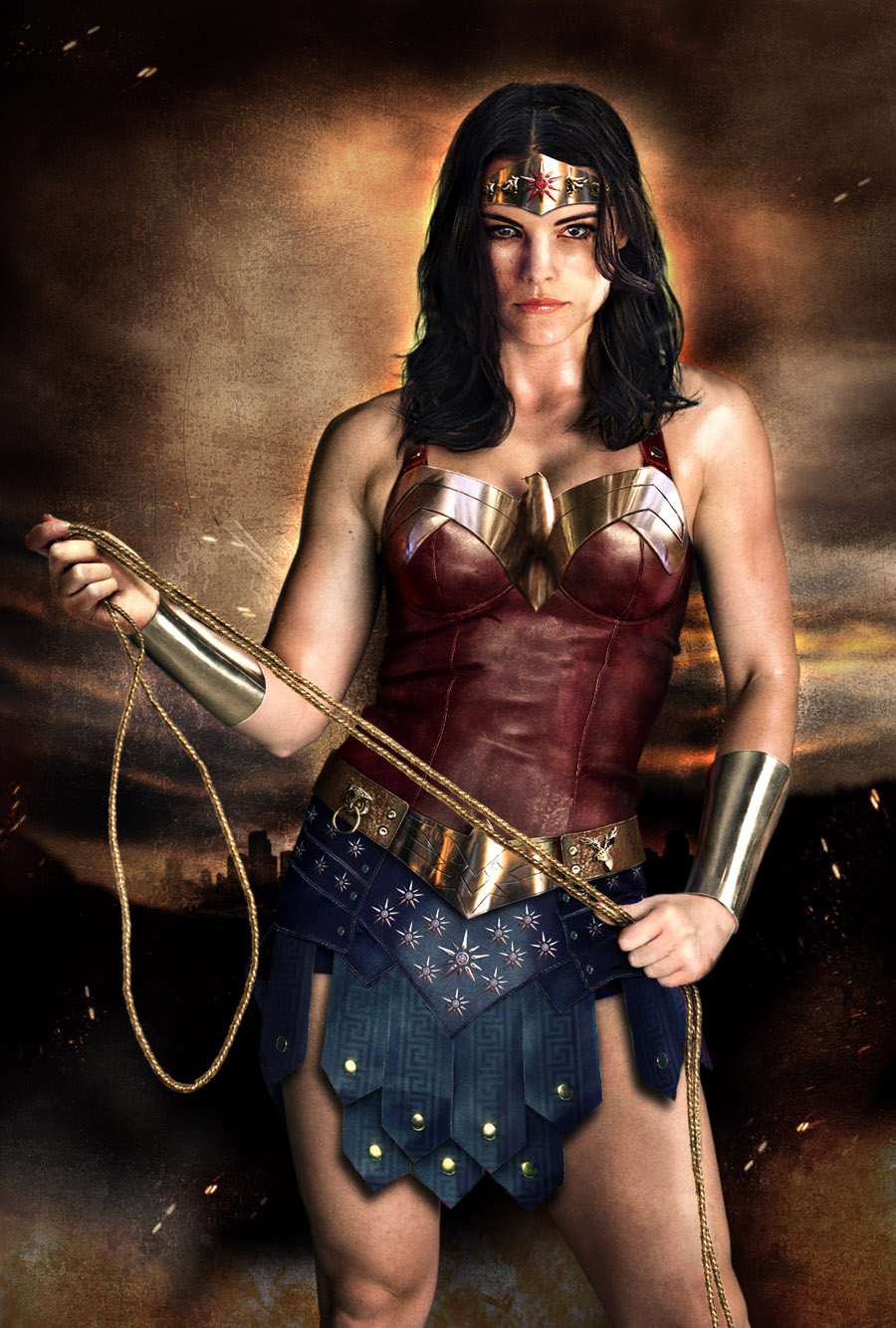
Second, Diana is a warrior. The Amazons of Themyscira have been trained for combat. Whether it’s because they’re preparing for Hades to escape, or if it’s part of a scheme to escape the island that’s been their prison for thousands of years, it’s immaterial the reason why. Unless you make that a formative part of Diana’s character. In any case, it’s not something you can ignore. Being a warrior means that Diana is undoubtedly aware of strategy, tactics, resource management, and battle logistics. Being royalty, she’s probably held positions of command in the war games, which has probably given her an understanding of war in the way Sun Tzu understood it. And an appreciation for those under her command.
Third, Diana is an advocate of peace. Or an emissary for Good, depending on which version you read. Since the reboot by George Perez, there’s been more of an emphasis on the character’s ties to the gods of mythology, and in that light Diana has been more of a Peace Ambassador of sorts.
So, David E. Kelley, Diana already has three identities before she ever leaves the island: princess, warrior, peacemaker. Add daughter to the mix, and you have a complex character before she meets mankind. And when that happens, you tack on yet another identity in Diana Prince.
Now, when you look at the history of the character, it’s a safe assumption that she started off as a female analogue to Superman. Powers beyond those of mortal men, with a humble and meek facade of a disguise. But that ship sailed a long time ago. As audiences have become more savvy to the ways of the world, and as the world has turned darker and more “dangerous” to some, comic books have had to grow up and change with the times. And characters that can’t be written for the times, get left behind.
That leaves DC in a bit of a predicament when it comes to Wonder Woman. On the one hand, you’ve got this symbol of female empowerment that the Women’s Lib movement latched onto and made their poster girl, a role model for women everywhere. Wonder Woman was a symbol of strength and the “Who needs a man?” myths of the 70s. But that movement has atrophied and withered as women have come into their own. Consider: there are strong women in politics, as CEOs of multi-billion dollar corporations, and going into space. It’s no longer hard to imagine being an “empowered female” of the species. And women have learned that they can be strong while still using the oh-so-familiar feminine wiles that come with being “the fairer sex”.
So, the challenge now becomes finding the right audience for Wonder Woman. 14-year-old boys? That’s a given, but they don’t have money after they’ve spent it on video games. Women? Also a given–unless the character is written as a mopey twentysomething silly girl, pining away after lost love. Which is exactly what Kelley did with the pilot that NBC rightly rejected.
Submitted for your consideration and discussion, a couple of items to note when trying to write a “Wonder Woman” that works:
1. Remember, Wonder Woman is not Tony Stark.
One of the most egregious errors in Kelley’s effort was to make this “Diana Themyscira” identity that runs a multi-million dollar corporation, which finances her exploits as a costumed vigilante. First, Iron Man and Batman Begins did it better. Because that’s who those characters have been from the very beginning. Even Oliver Queen makes a better millionaire/vigilante than Diana Themyscira.
Diana is an outsider, even more than Superman is. She may be from the same planet as humanity, but she’s from a completely isolated reality, and that informs her worldview. She’s not going to have the same appreciation for that which makes an ordinary mortal swoon. Putting her in a corporate environment where there are rules and best practices and regulations and oversight committees and laws and consumer advocacy groups and focus groups and on and on and on… I’d snap, too.
2. Remember, Wonder Woman isn’t Superman or Batman, either.
Superman and Batman have advantages over Wonder Woman, in that both of them have solid origins that allow the audience to identify with them. Like Peter Parker trying to fit in, Superman is the ultimate alien/outsider raised as one of us. He’s one of the Good Guys, the Big Blue Boy Scout. And he has a worldview that many people can identify with right off the bat. He’s decent and honest, moral to a fault. He’s what lives in our cultural memory: the Good Ol’ Days when men took care of their families, and people stayed married, and it meant something to go to church. But Superman has also been about wish fulfillment. For every kid who got picked on, for every geek and dweeb who just never found a place to fit in, Superman was the cape that hung in the closet. How many of us grew up wishing we could be like Superman?
Or wishing you could take out your vengeance on the schoolyard bully. Batman is also accessible as a character, because of the tragedy that shapes his life. We all know someone (or we know of someone) who has dealt with a serious loss. When it’s a crime on top of that, it’s easy to identify with Bruce Wayne’s sense of revenge. And when you have the uproar over O. J. Simpson or Casey Anthony, it’s easy to connect with Batman’s frustration at the system.
Not so with Diana of Paradise Island. She’s had it cushy all her life. And now she has an opportunity to get out into Man’s World and see the sights. She’s more “fish out of water”, which plays well for comedy, but not for superhero action. Wonder Woman has no emotional entry point for audiences. And that’s the most serious challenge facing anyone who wants to adapt her for live action. She’s “perfect”, and that makes her less real to people.
But on the flip side, you don’t make her more real by letting her be vulgar and putting her in charge of a corporation that funds her vigilante operations.
3. Wonder Woman is not about sex appeal.
Yes, she’s wearing a bustier and short shorts, but consider the psychology of women warriors like Diana or Red Sonja. They think in terms of tactics, right? It’s a smart strategy to distract and unbalance your opponent. What better way for a female warrior to do that with a male opponent? It’s not about sex appeal. It’s about distraction. This allows a warrior woman to come out ahead, because she has to use every advantage she has in order to offset the physical imbalance. More often than not, she’s going to be smaller than the thug.
Wonder Woman has to be a character who’s comfortable in her own skin, which is just another part of the costume. It’s armor of a different sort, and she takes for granted that she looks the way she does. Remember, on Paradise Island, they’re all pretty. So it’s no skin off Diana’s nose to be pretty. She’s just regular folks where she comes from. But when she gets to Man’s World, she’s smart enough to recognize the tactical advantage it gives her.
Do I have ideas on how to write the character for the screen? Sure. But I’m waiting for Joel Silver to read this and call me. I’m sure he can find my number.
For more information, check out DC Comics‘ website.
![]()


